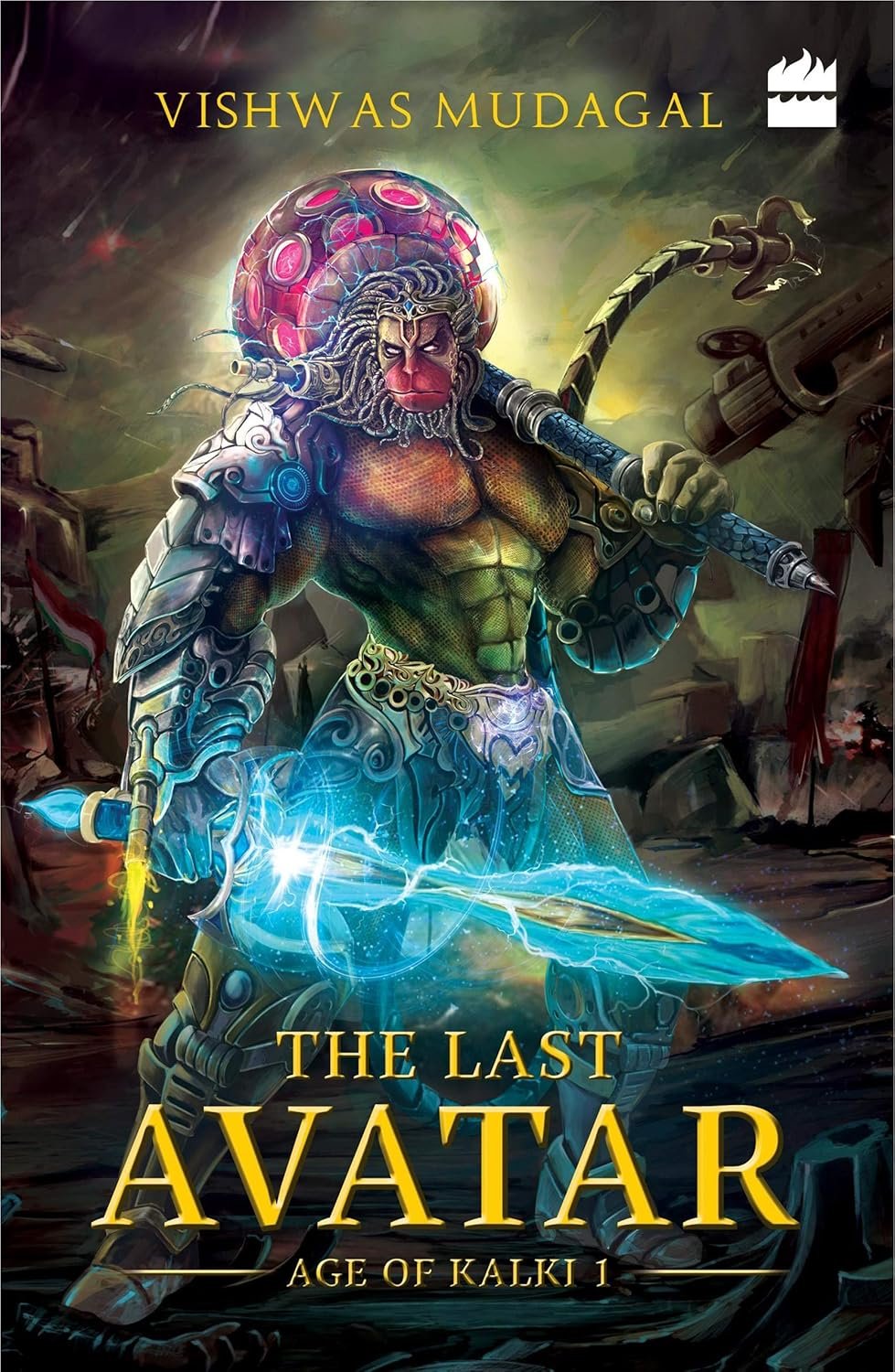PHOTO: Vishwas Mudagal, bestselling author and visionary entrepreneur, known for fusing ancient Indian mythology with futuristic narratives to create India’s first superhero universe.
Blending Entrepreneurship Mythology And Science Fiction
Vishwas Mudagal shares how personal failure shaped his writing, how mythology and science fiction converge in his superhero universe, and how storytelling empowers India’s youth to dream and create boldly.
Vishwas Mudagal is a storyteller forged in the crucible of failure and rebirth. When his first startup collapsed, he didn’t just rebuild his business—he reimagined his life through fiction. Losing My Religion, his debut novel, channels this raw personal transformation into the journey of Rishi Rai, a man who must lose everything to rediscover what truly matters. That it became a national bestseller is no surprise; its resonance lies in its emotional truth, its fearless introspection, and its unflinching hope.
His literary evolution didn’t stop there. With the Age of Kalki trilogy—beginning with The Last Avatar—Mudagal brings to life a daring fusion of Indian mythology and science fiction. This is not a rehashing of sacred stories, but a bold reimagining: ancient avatars reborn in a world of AI, biotechnology, and global upheaval. It is in this daring synthesis that he builds VMU, India’s first superhero universe—modern, mythic, and defiantly Indian.
A business leader by day and a writer by night, Mudagal embodies a rare duality: the relentless drive of the entrepreneur and the meditative depth of the novelist. His days are carved by strategy and growth; his nights, by characters and cosmos. He does not seek balance, but rather integration—of ideas, identities, and imagination.
Through his work, Vishwas Mudagal inspires a new generation to embrace risk, rise from ruin, and create with conviction. His voice is not just that of an author—it is the call of a visionary reshaping narrative and nation alike.
Vishwas Mudagal is an inspiring visionary whose resilience, creativity, and leadership continue to empower millions through his writing, entrepreneurship, and motivational guidance.
How did your personal experience of shutting down your startup shape the emotional and thematic core of Losing My Religion?
Shutting down my startup was my darkest hour. I was broke, directionless, and drowning in self-doubt. In Losing My Religion, Rishi Rai lives that moment. The bankruptcy, the existential crisis, the need for a fresh start—all came from my lived experience. That emotional truth is what resonates with readers: a man stripped of everything compelled to rediscover himself.
“Shutting down my startup was my darkest hour. That emotional truth is what resonates with readers.” – Vishwas Mudagal
What challenges did you face in blending mythology with science fiction in The Last Avatar, and how did you overcome them?
The challenge was twofold: honoring rich mythology while making it futuristic and believable. Combining ancient Vedic concepts—Yugas, avatars—with sci-fi elements like biotechnology and AI meant walking a tightrope between reverence and innovation. I overcame it by immersing myself in research—Vedic scriptures, Indian philosophy—as well as global sci-fi storytelling. I created characters and universes where the mystical and technological aren’t opposites but complementary forces.
With 155 drafts before publication, what kept you motivated through the many rejections and rewrites of your debut novel?
My literary journey truly began when I was 27 in the year 2009 when I started writing my debut novel Losing My Religion. To my surprise it turned out to be a book with around 100k words!
Each rewrite was a lesson. I wasn’t writing for fame—I was writing to heal. Early drafts failed, but every edited version brought me closer to the emotional heart of Rishi’s story. Readers kept reaching out with how the story moved them, how it mirrored their own journeys. That kept me going. Writing isn’t about perfection—it’s about persistence.
It took around five years to bring the book to the market (2009 to 2014). It was definitely not easy to find the right publisher. Several publishers rejected the novel for many reasons. Some said it was a fresh untested concept or because they thought it was a business book, and some because I was a debutante. But Fingerprint! (my publisher for Losing My Religion) believed in the book, commissioned it and it went on to debut as a bestseller.
How do you balance your dual passions of entrepreneurship and storytelling in your daily life?
I structure my day like a startup sprint. During the days, I’m an entrepreneur. Mornings and afternoons are reserved for business—calls, strategy, execution with Goodworks Group (which is one of the fastest growing tech and real estate conglomerates in India).
By night, I’m an author and a creator. I write during the nights, with no one to disturb me.
And, weekends are for ideation—thinking about stories, character arcs, and new business opportunities. I treat both as ventures—they require vision, discipline, and iteration. It’s not balance—it’s integration.
The character of Rishi Rai resonates deeply with many readers—how closely does he mirror your own journey?
‘Losing My Religion’ is the story of a fallen entrepreneur Rishi Rai whose life takes an unexpected turn when he meets a crazy American hippie and sets out on an uncharted journey across India.
It’s a roller coaster ride that brings together adventure, travel, gaming, reality shows, and characters that are real, living, and breathing. Rishi, a fallen entrepreneur, is the epitome of today’s ambitious youth, and wants to change the world. Alex, a hippie, is the other end of the spectrum—the epitome of human evolution; this is where the human race will one day want to be—free from within. And Kyra, a mysterious gamer, who is the beauty, the passion, and the intellect; she is today’s woman.
Rishi Rai is autobiographical in spirit. Like him, I built a startup full of hope, only to see it collapse—and watched my dream vanish in a financial crash.
His journey to rediscover purpose on a spontaneous roadtrip mirrors my own process of rebuilding: writing Losing My Religion, launching GoodWorks group of companies, and creating India’s very own superhero universe VMU. Rishi Rai and I share resilience, curiosity, and the ability to laugh at ourselves.
What kind of research did you undertake to build the immersive universe of the Age of Kalki trilogy?
I was tired of Hollywood superheroes & decided it’s time to bring out a true Indian superhero with roots deep in our ancient knowledge. The idea for my trilogy Age of Kalki (THE LAST AVATAR book 1) was born from this! Unlike all other mythology books, I wanted my book to be set in the future.
I was always fascinated with the prophecy of Kalki, the 10th and last avatar of God, who the ancient Hindu Puranas and epics predict would be born in the future to end the age of darkness on Earth. It is told that Kalki the Destroyer, would be all-powerful and merciless towards evil. But what if the God incarnate was born as mortal as any one of us in tomorrow’s world and had to toil through a tumultuous path with true grit and valor to one day save humanity from destroying itself?
This premise formed the basis of my trilogy, which is written over a fabric of mythology but weaved by threads of science-fiction and laden with tense geopolitical equations that truly surround us today.
I first hit upon the idea on 12th December 2010 and it kept me wide awake for a few nights. Since then, it’s taken me nearly eight years of research, writing, rewriting and practically living this book—a journey of creating the true Indian superhero and the last avatar Kalki in flesh and blood. I feel blessed to have had this vision and have loved every bit of this creative journey.
In what ways do you believe your books have influenced the youth, particularly in encouraging them to take risks and follow their passion?
Over the years, thousands of readers have written to me that Losing My Religion helped them overcome setbacks in their lives, be it personal or professional. It liberated them by taking them on an uncharted journey and helped them discover themselves in the process. Failure is not the end, and its only by completely losing your faith that you can be reborn again and succeed massively. That’s the message the youth get from my book.
My superhero universe VMU encourages them to reimagine India—as a technological superpower with spiritual depth. Together, my books and universe inspire action, not escapism. They nudge young Indians to combine ambition with purpose—to build, to create, to evolve.
What advice would you offer to aspiring authors trying to break through in today’s competitive literary landscape?
Write every day—even a paragraph counts. Rewrite without mercy. Read widely—mythology, sci-fi, business, biographies. Find your unique voice—mine is entrepreneurship meets mythic heroism. And most importantly: ship. Don’t wait for perfect. Publish a draft, listen to readers, iterate. The world rewards persistence more than perfection. Own your story—no one else can tell it the way you can.
EDITOR’S CHOICE
A thrilling blend of mythology, science fiction, and politics, The Last Avatar delivers relentless action, rich imagination, and unforgettable intrigue.



